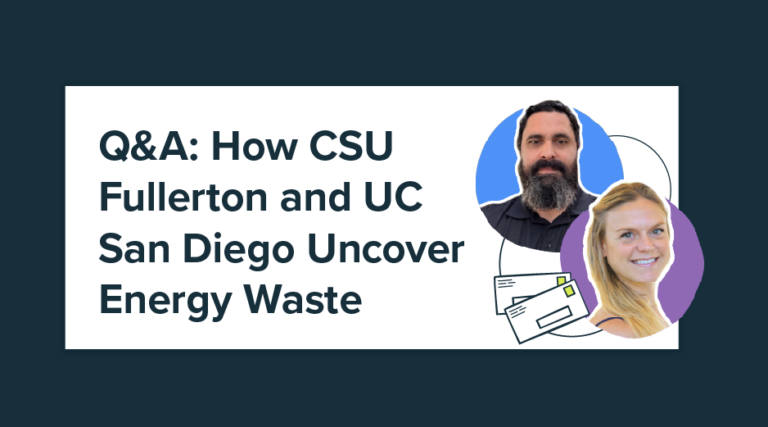Implementing enterprise software is a major event in the life of an organization, comparable to personal events like a wedding, childbirth, and selling a house. It’s much easier to gracefully walk out these changes with a guide—one who has been there before. For a wedding, you have the pastor. For childbirth, the doctor. Selling your house? Find a good realtor!

But where do you turn for implementing enterprise software?
Managing Change: The Project Manager
At EnergyCAP, our solution for helping you implement enterprise software is your Project Manager (PM). The PM is your organizational counselor, doctor, confidante, and friend through what can be a challenging transition. Yes, you could “go it alone,” but our experience suggests that using a PM is most successful.
Enterprise clients are assigned a PM from our Implementation Solutions team, who builds relationships with the members of the client implementation team to ensure an orderly, efficient, and timely software acquisition process. Your PM has a challenging role to play, since he/she must shoulder significant managerial responsibilities with little or no organizational authority within your organization.
Functioning essentially as an external consultant, the PM is the subject matter expert on the implementation process. For the PM, implementation is a series of carefully sequenced tasks that must be completed in a timeframe often specified by organizational actors beyond his/her influence or control. Added to the challenge is the fact that every implementation has unique elements that require customized responses. The PM must be prepared to pivot from task-to-task and from script-to-improvisation as the implementation drama unfolds.
Here are tasks from a PM’s busy work schedule that illustrate the nature of key activities:
Data Management
- Post a database copy to the EnergyCAP website for a client to download and install
- Clean up organizational setup data for a client
Communications
- Review the flood of emails in my inbox
- Check calendar for scheduled Client Project Meetings (CPMs), staff meetings, and other meetings that have cropped up.
- Schedule GoTo Meeting (GTM) with client stakeholders and send CPM agenda(s)
- Check email again
- Participate in an interview for a Project Engineer candidate
- Host CPM
Logistics
- Prepare agendas for upcoming CPMs
- Attend staff meeting
- Delegate project tasks to EnergyCAP staff
- Compile CPM minutes and send to team
- Create meeting notes on desired enhancements to EnergyCAP
Technical Support
- Assist tech support team with resolution of client tickets
- Follow up to make certain that a technical issue for a client has been resolved
- Respond to a client question on EnergyCAP reports
- Respond to a client question
- Prepare educational materials for upcoming training conference
Customization
- Follow up on new feature suggestions
- Research custom applications supplied to a client
- Suggest a change in a client’s current workflow process
- Test custom interface for a client
- Follow up with the development department regarding changes to client interface
The sheer number and type of activities, as well as their complexity, illustrates the value and challenges of the PM in the software implementation process.
The PM Unmasked
We asked EnergyCAP Senior Project Manager SJ Bergman about the implementation process:
Q: Tell us about the implementation process. Is it pretty much the same for each client?
A: Every implementation is challenging, and that’s because we try hard to understand each client and situation. And they are all unique. That doesn’t include the energy part of it. That includes, IT, A/P—all these departments are parts of what we have to understand to do the implementation.
Q: Where and how do you do software training?
A: Implementation is usually remote, then we do training onsite. There is a standard set of tasks for implementation that is customized based on customer needs. Length of implementation is directly impacted by client involvement. When we have clients who are involved, who know what is going on with their utility bills, and are engaged with the project, then things can go much faster. We can’t make things go faster. If the client is willing to put in the time and resources, then the project will get done.
Q: Have you ever had to handle an unusual request during an implementation?
A: Every client has an unusual situation. One client in a sales meeting asked about whether we could track salmon count. Maybe they wanted to track salmon as a sustainability metric. I never heard if they actually implemented it. The important thing is that we’ve seen a lot of unusual situations, and we’re prepared to provide as much customization as is needed.
Q: How do implementation tasks get done? Who is responsible for what?
A: Clients are busy—in guiding the implementation, we are respectful of their time. We set project meeting agendas in advance. We try to make sure that we have tasks assigned (on our side and theirs). This maximizes the value of client time. As Project Managers, we are constantly assigning tasks and giving people things to do. Client Project Meetings can answer questions and move the project forward. These are not working sessions. We want the client to self-perform. We understand that clients have lots of things going on besides EnergyCAP, and we want to be as efficient as possible with their time. Our CPMs take a lot of time in preparation. We are always prepared to give our clients the tasks that will move the project forward.
We also devote time to supporting existing clients’ immediate needs, such as troubleshooting, maintenance of data reformatters, and day-to-day operations issues. Client satisfaction is a top priority for Project Managers. I estimate that high-level PM intervention requires at least 2-4 hours of my work time per week.
Summary
EnergyCAP Project Managers may not be able to sell your house or officiate at your wedding, but they play a key role in managing the organizational changes required for a successful software implementation. PM’s assist in identifying and overcoming the significant technical and logistical challenges associated with implementation, including data management, logistics, communication, customization, and technical support. With these helpful guides, you can enjoy the implementation process instead of struggling through it alone.
{{cta(‘1d34a06f-79e8-45c0-ab9c-1dc6ea1e407e’)}}
 Best-in-class portfolio-level energy and utility bill data management and reporting.
Best-in-class portfolio-level energy and utility bill data management and reporting.
 Real-time energy and sustainability analytics for high-performance, net-zero buildings.
Real-time energy and sustainability analytics for high-performance, net-zero buildings.
 A holistic view of financial-grade scope 1, 2, and 3 carbon emissions data across your entire business.
A holistic view of financial-grade scope 1, 2, and 3 carbon emissions data across your entire business.
 Energy and sustainability benchmarking compliance software designed for utilities.
Energy and sustainability benchmarking compliance software designed for utilities.



